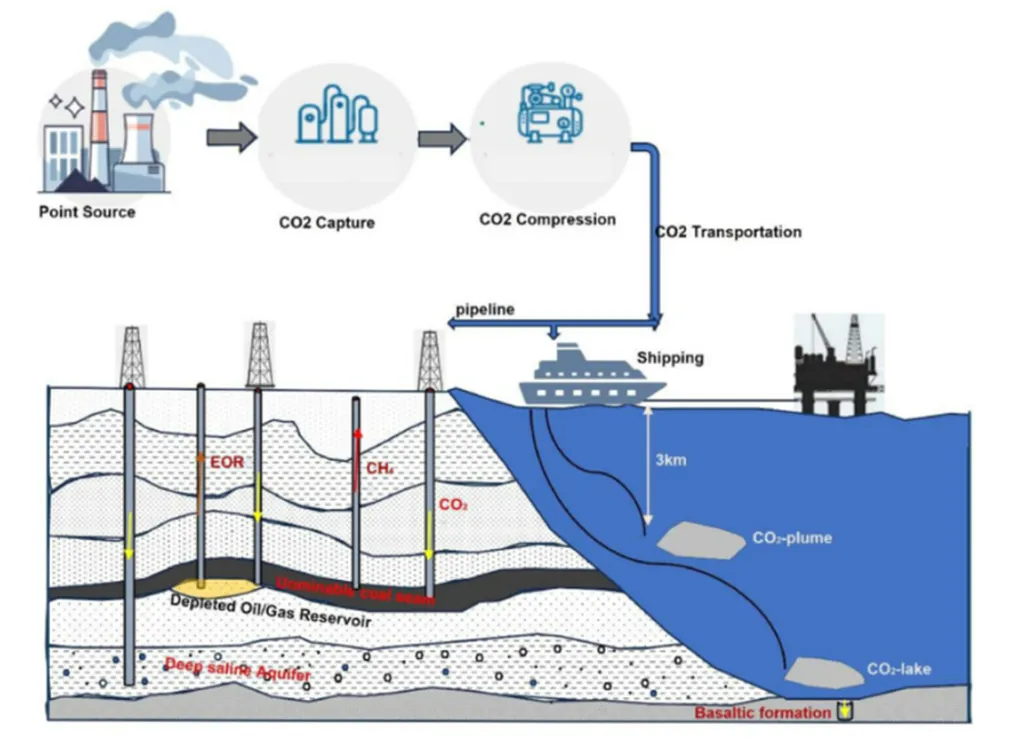In the heart of Africa, Nigeria stands at a crossroads, balancing its reliance on fossil fuels with the urgent need to curb carbon emissions. A recent study published in the journal *Unconventional Resources* (translated from the original title) sheds light on the potential for geological CO2 storage in Nigeria, offering a glimmer of hope for the country’s energy transition. The research, led by Victor Omefe from the Environment and Climate Action Department at the Clean Technology Hub in Abuja, Nigeria, explores the prospects and challenges of deploying Carbon Capture, Utilization, and Storage (CCUS) technologies in the region.
Nigeria’s Nationally Determined Contribution (NDC) sets ambitious targets for reducing greenhouse gas emissions by 20–47%. However, the path to achieving these goals is fraught with obstacles, including limited technological innovation and a lack of enabling investment mechanisms. Omefe’s study highlights the critical factors that will determine the success of CCUS in Nigeria: the suitability of carbon capture technologies, technical readiness, economic feasibility, and comprehensive life cycle assessments to ensure sustainability.
The International Finance Corporation (IFC) has estimated Nigeria’s theoretical storage potential at about 10.7 gigatons of CO2. However, Omefe’s review of basin-specific studies suggests that this figure may be conservative. The Niger Delta, in particular, emerges as a promising region for large-scale CO2 sequestration. “The Niger Delta’s geological characteristics make it a prime candidate for CO2 storage,” Omefe explains. “But to unlock this potential, we need a focused policy shift and strategic partnerships.”
Despite the promising indicators, significant hurdles remain. The absence of commercial-scale CCUS deployment, weak regulatory support, and a lack of fiscal incentives are major obstacles. Omefe argues for leveraging Nigeria’s existing oil and gas infrastructure to cluster CO2 point sources, sharing transportation and injection facilities. This approach could enhance economic viability and facilitate the development of carbon credits through initiatives like the Africa Carbon Markets Initiative (ACMI).
Pilot studies have already demonstrated promising storage performance, paving the way for near-term demonstration projects. Omefe’s research underscores the importance of international collaboration, policy support, and technology deployment in making geological CO2 storage a reality in Nigeria. “With the right support, CCUS could play a critical role in Nigeria’s journey towards climate and sustainable energy development,” Omefe asserts.
The findings of this study have significant implications for the energy sector. By addressing the identified challenges and capitalizing on the opportunities, Nigeria could position itself as a leader in CO2 sequestration, attracting investment and fostering innovation. The research also highlights the need for a comprehensive approach that integrates economic, environmental, and technological considerations.
As Nigeria navigates its energy transition, the insights from Omefe’s study offer a roadmap for aligning CCUS deployment with national climate goals. The journey is complex, but the potential rewards are substantial. By embracing the recommendations outlined in this research, Nigeria can take a significant step towards a sustainable and low-carbon future.

